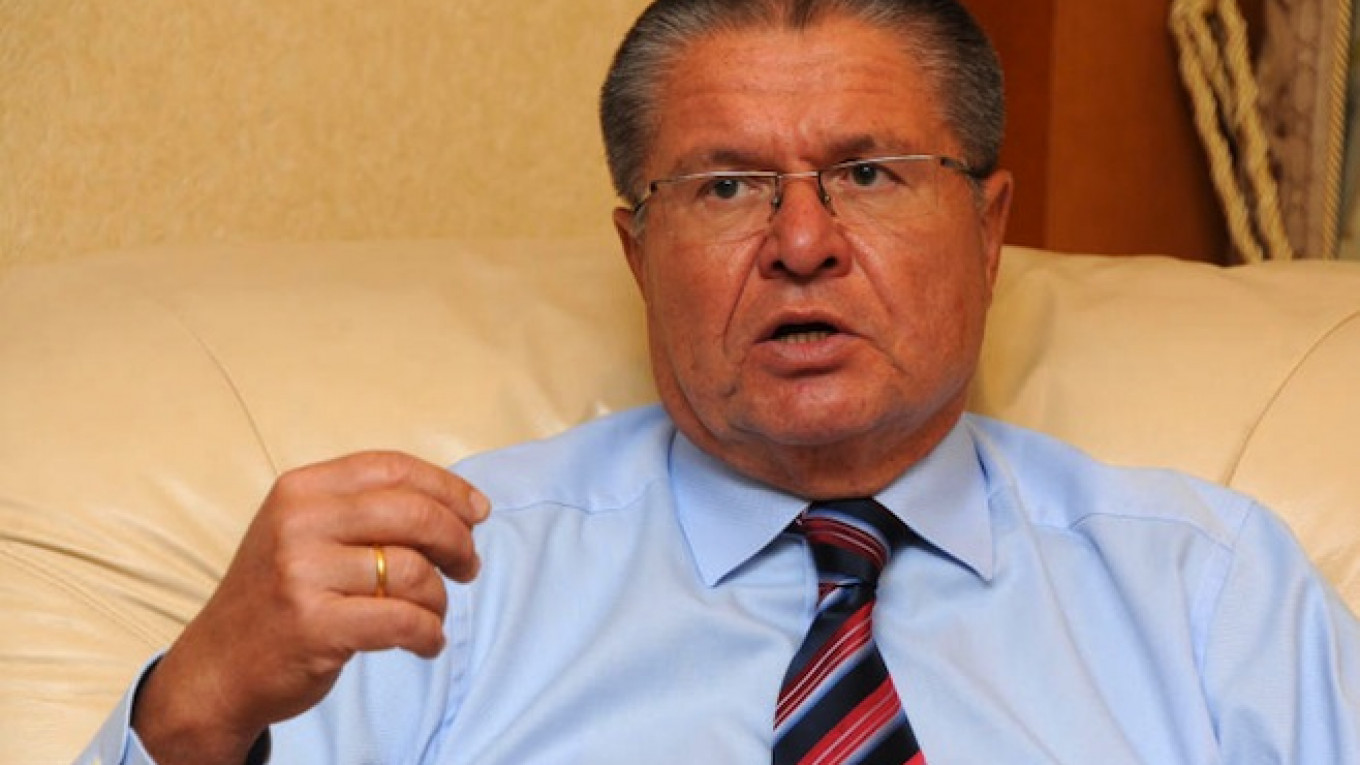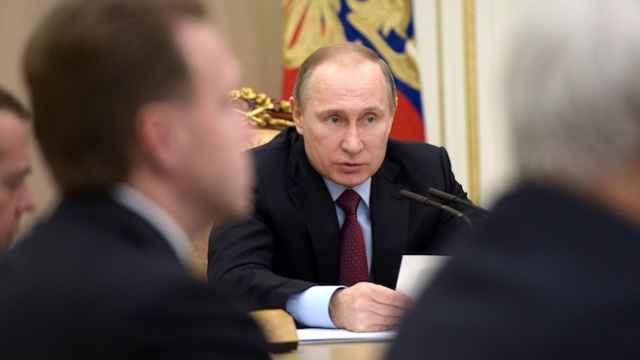Two oil firms — Rosneft and Bashneft — and diamond producer Alrosa are among the most likely candidates for privatization this year, Economic Development Minister Alexei Ulyukayev said Wednesday.
Officials have touted a major sale of state companies as a way to fill a gaping hole in budget revenues due to the low price of oil.
Alrosa, Rosneft and Bashneft were included in an existing privatization plan and are already traded on stock markets, making them easiest to sell, Ulyukayev said, according to the TASS news agency.
The government's shares in Basheft and Alrosa are together worth around 600 billion rubles ($7.5 billion) at current market prices, and a 19.5 percent share in Rosneft proposed for sale could raise a further 500 billion rubles ($6.5 billion).
Other companies mooted for sale include shipping company Sovkomflot and a stake in banking group VTB, together worth a further 100 billion rubles.
President Vladimir Putin at a meeting with officials and heads of state companies on Monday said companies should not be sold “at giveaway prices,” and added that the government should maintain control over strategic firms and buyers should be registered in Russia.
With share prices — and therefore government revenues from their sale — low, analysts have questioned whether major privatization will go ahead. It is also unclear who would buy the shares amid a Russian recession and financial sanctions imposed during the Ukraine crisis in 2014.
But a fiscal emergency could force the issue. The energy industry supplies around half of Russia's budget revenues. The current spending plan for 2016 anticipated an average price for the year of $50 per barrel and a deficit of 2.3 trillion rubles, or 3 percent of GDP. However, the price of benchmark Brent crude fell sharply in January and is now hovering a little over $30 per barrel.
A Message from The Moscow Times:
Dear readers,
We are facing unprecedented challenges. Russia's Prosecutor General's Office has designated The Moscow Times as an "undesirable" organization, criminalizing our work and putting our staff at risk of prosecution. This follows our earlier unjust labeling as a "foreign agent."
These actions are direct attempts to silence independent journalism in Russia. The authorities claim our work "discredits the decisions of the Russian leadership." We see things differently: we strive to provide accurate, unbiased reporting on Russia.
We, the journalists of The Moscow Times, refuse to be silenced. But to continue our work, we need your help.
Your support, no matter how small, makes a world of difference. If you can, please support us monthly starting from just $2. It's quick to set up, and every contribution makes a significant impact.
By supporting The Moscow Times, you're defending open, independent journalism in the face of repression. Thank you for standing with us.
Remind me later.






